New Frontiers Project
Encouraging learning, methodological development and action regarding deliberative democracy


What are the frontiers?
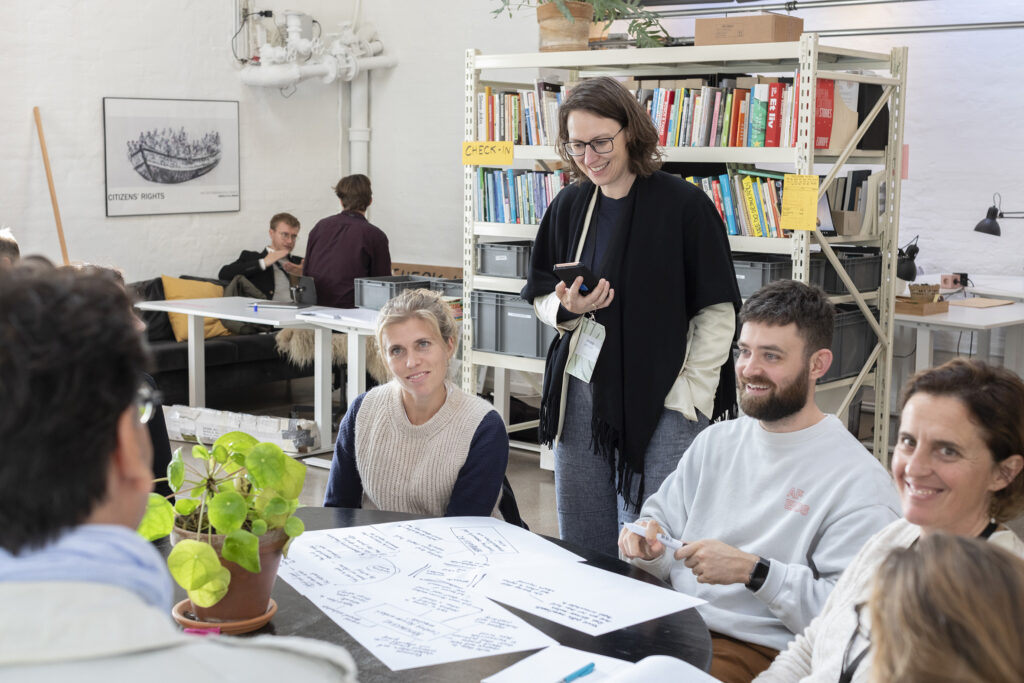
In the last decade, deliberative democracy has faced, in particular, three new frontiers that represent challenges and opportunities to improve its effectiveness around the world (especially in the Global South). These frontiers are the motivation for our project:
Deliberation on Difficult Issues
South—North Learning (SNL)
Institutionalization
The priority of this project is to support countries in the Global South. Therefore, by working on these three frontiers, we want to contribute to improving the quality and sustainability of current and future processes based on the deliberative democracy by Southern organizations.
Virtuous cycle
With this project, we will create a virtuous cycle in which three permanent committees work cyclically to reflect, design, and implement new ideas, gaining in each cycle more knowledge and experience. The phases of this virtuous circle are:
Learning
Development of methodologies
Action
The objective of this phase is to reflect on the boundaries, identify the advantages and disadvantages of traditional deliberative mechanisms, and develop new knowledge.
The objective of this phase is to develop new methods and tools adapted to the three frontiers.
We are not starting from scratch. Democracy R&D network members have already done (and are doing) good work on the three frontiers, for example, with pioneering public deliberations in Brazil, Colombia, Mexico, Rwanda, and Nigeria. The aim of this phase is to support these projects through team capacity, sharing of methods and tools, and additional funding.
Acción
No partimos de cero. Los miembros de la red Democracy R&D ya han hecho (y están haciendo) un buen trabajo en las tres fronteras, por ejemplo, con las deliberaciones públicas pioneras en Brasil, Colombia, México, Ruanda y Nigeria. El objetivo de esta fase es conseguir que los proyectos tengan más éxito mediante equipos de apoyo, mejores métodos y herramientas y apoyando con financiación adicional.
Learning
No partimos de cero. Los miembros de la red Democracy R&D ya han hecho (y están haciendo) un buen trabajo en las tres fronteras, por ejemplo, con las deliberaciones públicas pioneras en Brasil, Colombia, México, Ruanda y Nigeria. El objetivo de esta fase es conseguir que los proyectos tengan más éxito mediante equipos de apoyo, mejores métodos y herramientas y apoyando con financiación adicional.
Development of methodologies
No partimos de cero. Los miembros de la red Democracy R&D ya han hecho (y están haciendo) un buen trabajo en las tres fronteras, por ejemplo, con las deliberaciones públicas pioneras en Brasil, Colombia, México, Ruanda y Nigeria. El objetivo de esta fase es conseguir que los proyectos tengan más éxito mediante equipos de apoyo, mejores métodos y herramientas y apoyando con financiación adicional.
Actividades Principales

Planificación y organización
Formaremos un comité para coordinar las actividades de cada frontera. Se celebrarán workshops para comprender el alcance de cada frontera, resumir y organizar las lecciones aprendidas, seleccionar los proyectos de Democracy R&D para reforzarlos con nuevas metodologías y crear equipos de apoyo y aprendizaje.

Puesta en práctica
Crearemos nuevas metodologías basadas en las tres fronteras, desarrollaremos tres living guidebooks y aplicaremos las metodologías en los proyectos de Democracy R&D.
El principal producto de esta actividad son las living guidebooks, ya que realizaremos una para cada frontera:
- Es un producto del trabajo colectivo.
- Se actualiza con el tiempo, a partir de nuevos resultados y aprendizajes.
- Se desarrolla en estrecha relación con la práctica.
- Incluye otros materiales interactivos para presentar la información tales como vídeos, audios, esquemas e infografías.

Evaluación y comunicación
Evaluaremos la utilidad de las metodologías y las living guidebooks, revisaremos y resumiremos el aprendizaje del proyecto, mejoraremos las living guidebooks mediante reuniones y encuentros, traduciremos las living guidebooks al español, portugués y francés.

Planificación y organización
Formaremos un comité para coordinar las actividades de cada frontera. Se celebrarán workshops para comprender el alcance de cada frontera, resumir y organizar las lecciones aprendidas, seleccionar los proyectos de Democracy R&D para reforzarlos con nuevas metodologías y crear equipos de apoyo y aprendizaje.

Puesta en práctica
Crearemos nuevas metodologías basadas en las tres fronteras, desarrollaremos tres living guidebooks y aplicaremos las metodologías en los proyectos de Democracy R&D.
El principal producto de esta actividad son las living guidebooks, ya que realizaremos una para cada frontera:
- Es un producto del trabajo colectivo.
- Se actualiza con el tiempo, a partir de nuevos resultados y aprendizajes.
- Se desarrolla en estrecha relación con la práctica.
- Incluye otros materiales interactivos para presentar la información tales como vídeos, audios, esquemas e infografías.

Evaluación y comunicación
Evaluaremos la utilidad de las metodologías y las living guidebooks, revisaremos y resumiremos el aprendizaje del proyecto, mejoraremos las living guidebooks mediante reuniones y encuentros, traduciremos las living guidebooks al español, portugués y francés.
Objectives
General
To promote learning, methodologies and action in the Global South around the three frontiers of deliberative democracy.
Specific objectives
Objective 1
To develop new knowledge for the Global South in relation to the three frontiers of deliberative democracy.
Objective 2
To develop new tools and methodologies on the three frontiers of deliberative democracy from the Global South, test them in practice, and document them in the three living guidebooks.
Objective 3
Contribute to the success of projects related to the three frontiers of Democracy R&D members from the Global South.
New Frontiers team

David Schecter
David Schecter has been working in the field of deliberative democracy since 2012. He and Lyn Carson led the founding...

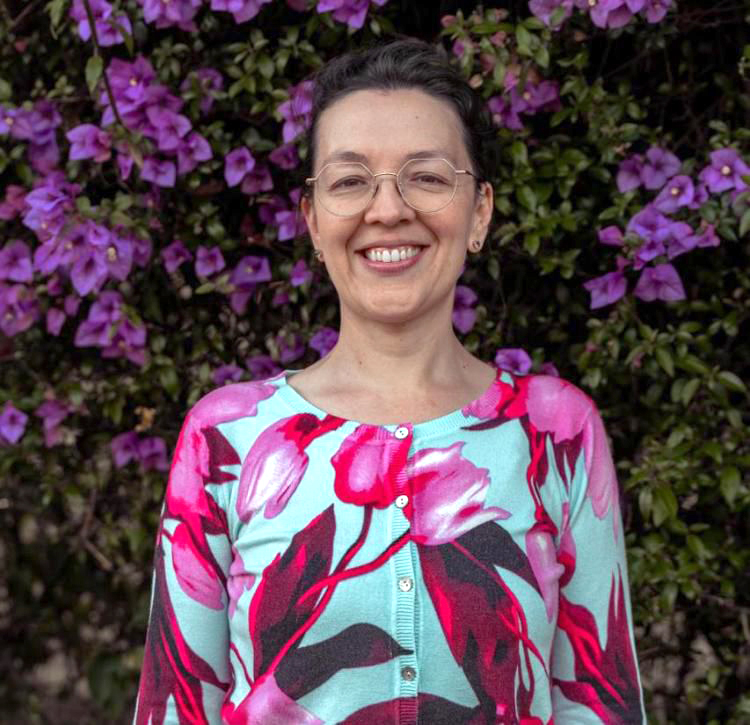
Indira Latorre
Indira is a career professor at the Faculty of Law of Universidad del Rosario (Colombia). She holds a PhD in...


Felipe Rey
Professor of Public Law at Javeriana University in Bogotá, Colombia. He holds a Ph.D. in Law (2019) and an LL.M....

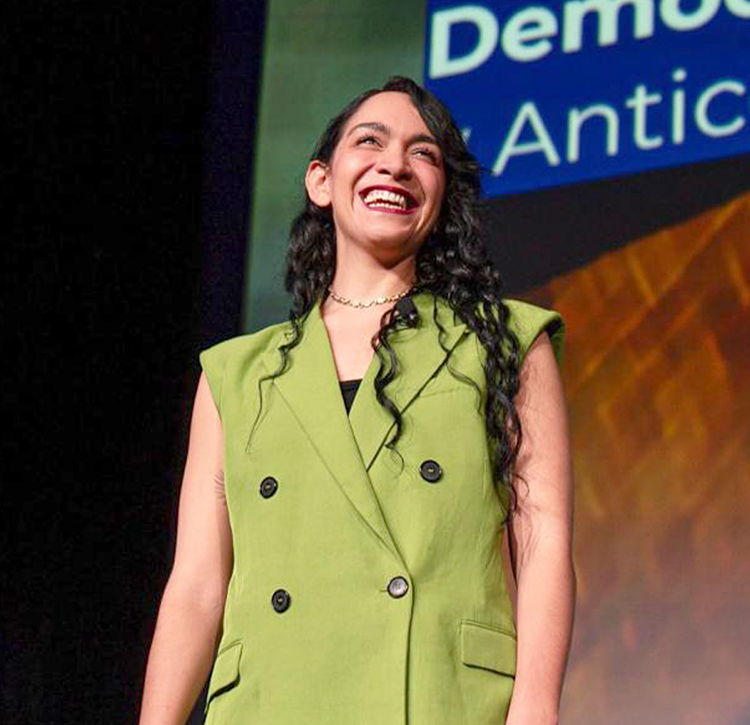
Sofía Castillo
Sofía Castillo is an expert in deliberation and governance, with more than 6 years of experience in management and coordination...

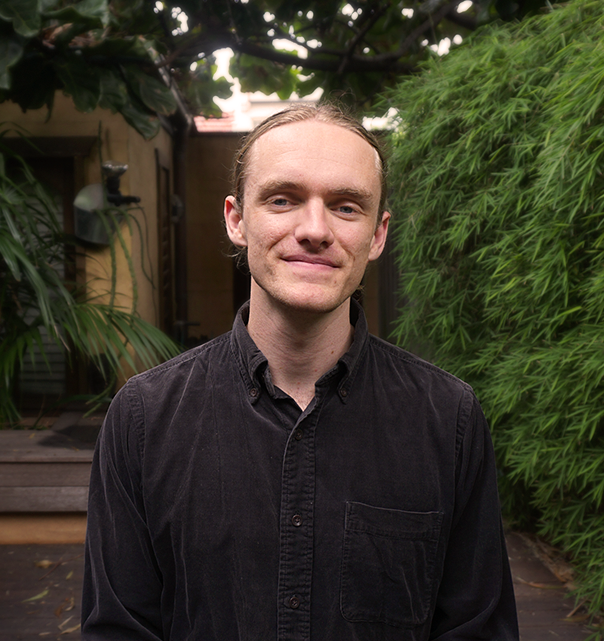
Kyle Redman
Kyle is the Director of Research and Design at the newDemocracy Foundation. He has designed and operated several of newDemocracy’s...

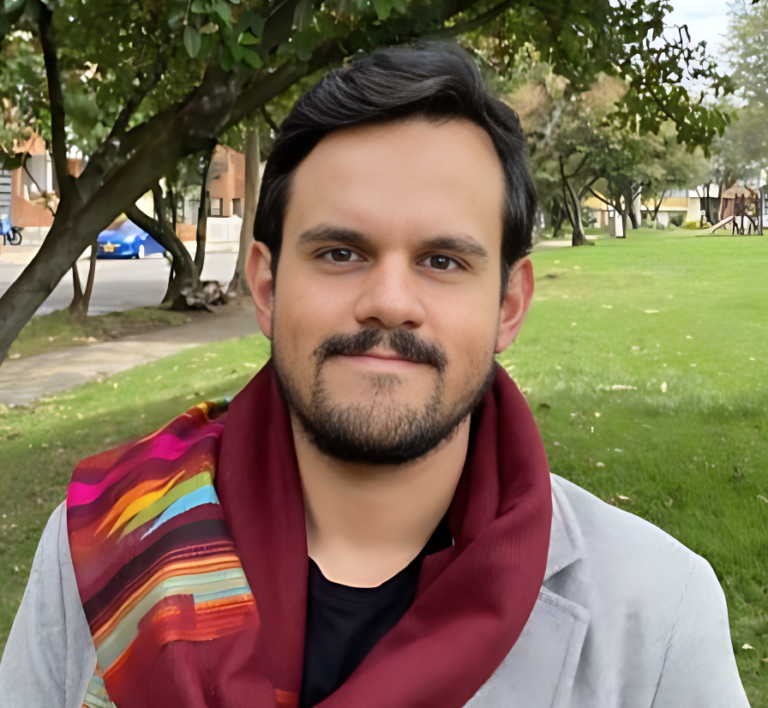
Santiago Niño Aguilar
He studied Law at the Javeriana University and is currently pursuing studies in Philosophy at the National University of Colombia....

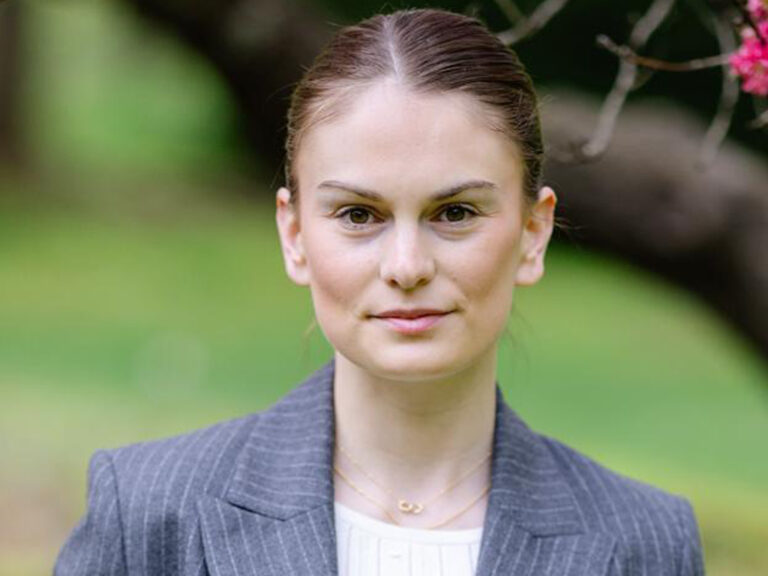
Canning Malkin
Canning is a deliberative democracy researcher whose primary focuses are climate citizens’ assemblies, deliberations on AI policy and governance, and...


Silvia Cervellini
Silvia Cervellini is Co-founder and Director of Delibera Brasil since 2017 with a previous 20 years executive career at IBOPE,...


Karin Adams
Karin Adams is a researcher and practitioner in the areas of democracy and international political economy. In the topic of...


Susan Lee
Susan Lee, a scholar and practitioner of democracy from Seoul, South Korea, co-founded the World Citizens’ Assembly in 2020, a...

Living Guidebooks
We created three comprehensive and situationally-relevant living guidebooks on institutionalization, the Global South, and difficult issues. These guides are available for editing by members of the network, empowering them not only to utilize the guides for their own projects but also to enrich and update them with new information and cases from their respective countries. Combined, these living guidebooks encompass:
Deliberation on Difficult Issues
This living guidebook aims to help answer these questions with reference to the few real-world examples of deliberation on ‘difficult issues’. The living guidebook is written for practitioners and organisers of minipublics and other forms of deliberation.
South - North Learning (SNL)
The living guidebook is an innovative tool designed to foster mutual learning within the Democracy R&D.
Institutionalization
This living guidebook is about incorporating civic lottery, deliberation, and “rough consensus” (and related democratic innovations) into political systems as ongoing practices (not just one-off events) – often called “institutionalization.”
Projects
We selected five projects to provide technical and financial support. The technical support includes providing assistance, recommendations, offering the tools available in the living guidebooks, and analyzing the results of these projects. The work of these projects will serve as a learning experience for us to update our living guidebooks. The selected projects are the following:

3D India (Demonstrate, Deliberate, Democratize)

Country: India
In charge: Centre for Environmental Education
Implement and evaluate South-South mutual learning methodologies specifically focused on tools and alternatives for citizen selection by lottery. Recognize Global South knowledge and innovative solutions in the implementation of civic lottery to conduct mini-publics.
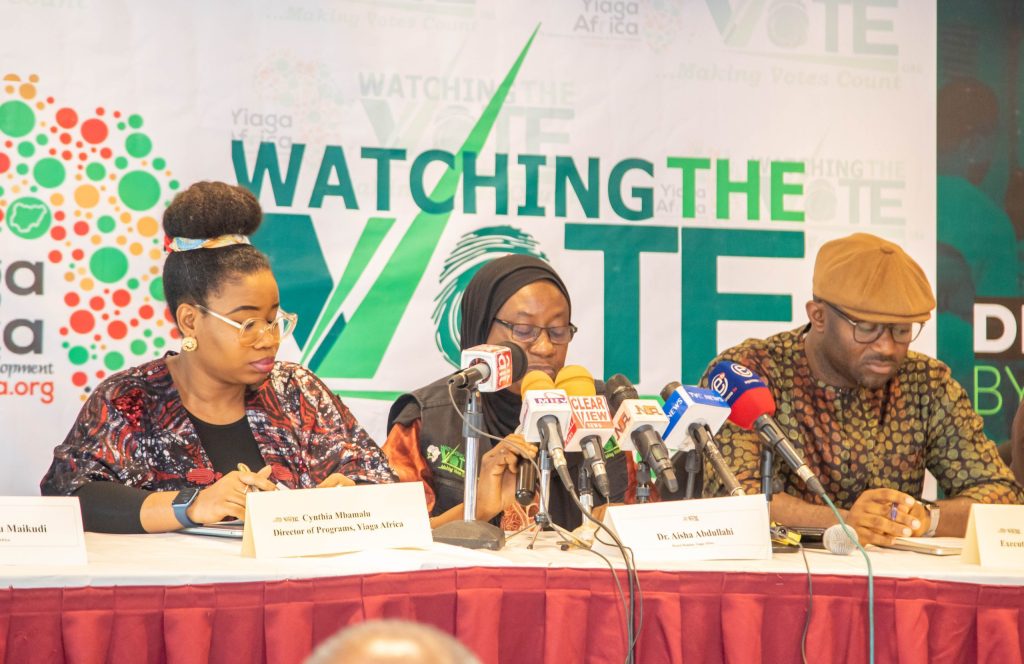
Turn Up Democracy

Country: Nigeria
In charge: Yiaga Africa
Implement and evaluate methodologies and tools for the institutionalization of deliberative democracy in the executive councils of at least 3 local government areas in Nigeria.

Difficult deliberations. Exploring possibilities for citizens assemblies on historical memory, minority rights, and post-conflict governance in Central and Eastern Europe

Country: Several Central and Eastern Europe countries.
In charge: Damir Kapidzic (University of Sarajevo), Gazela Pudar Drasko (University of Belgrade) and Eva Bordos (DemNet Hungary).
Identify and evaluate the results of deliberative tools and methodologies on difficult issues such as polarization and historical memory in the context of Central and Eastern Europe.
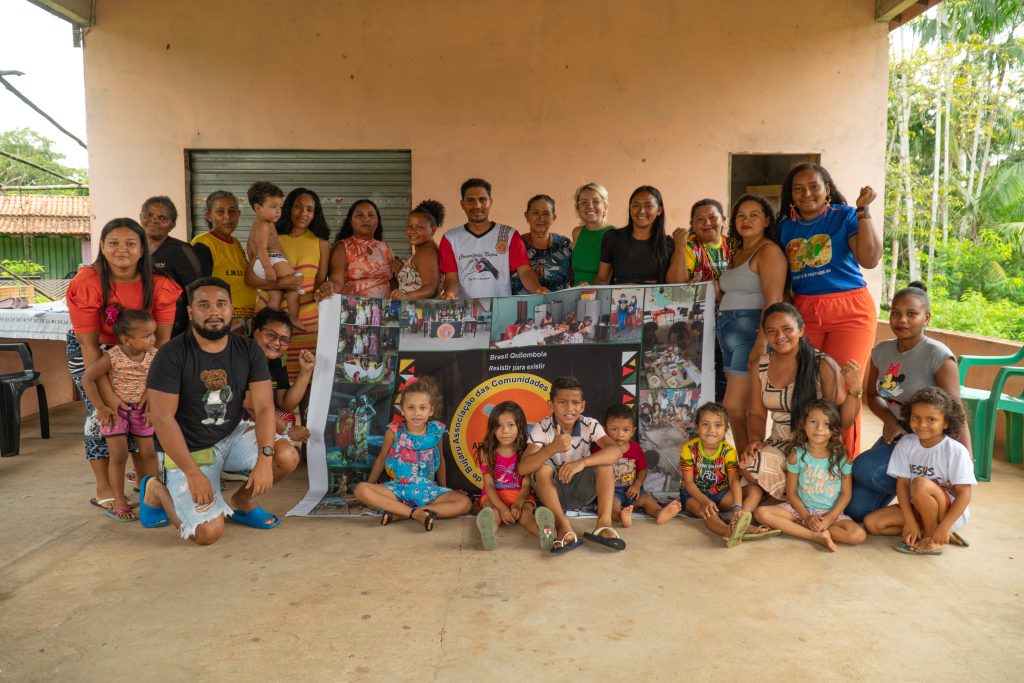
Indigenous peoples’ integration in Bujaru’s Citizen Assembly

Country: Brazil
In charge: Delibera Brasil
- Enhance the learning of the entire network on deliberation with indigenous and traditional people and communities. These lessons will be incorporated into the Living Guidebook in order to transfer the learning to network members in other countries in the Global South and Global North. These lessons will be related to:
- Exclusion of civic space.
- Integration of indigenous and traditional people into the design of Citizens’ Assemblies.
- Inclusion of indigenous and traditional people into Citizens’ Assemblies sortition and deliberation practices.

Itinerant Citizen Assembly

Country: Colombia
In charge: Demo Lab
Promote the visibility of the Itinerant Citizen Assembly (through a documentary film and other graphic strategies) in order to support its institutionalization and the continuation of another period of deliberation chapters.

Explore more
Get to know about us
Our members
Democracy R&D, with 189 members in 55 countries, fosters deliberative democracy and democratic innovation on a global scale.
Get to know our work
Highlighted Projects
The network’s members work to increase civic lottery use, deliberation, and democratic reforms, locally to internationally. DRD’s areas of work are collaborative…

